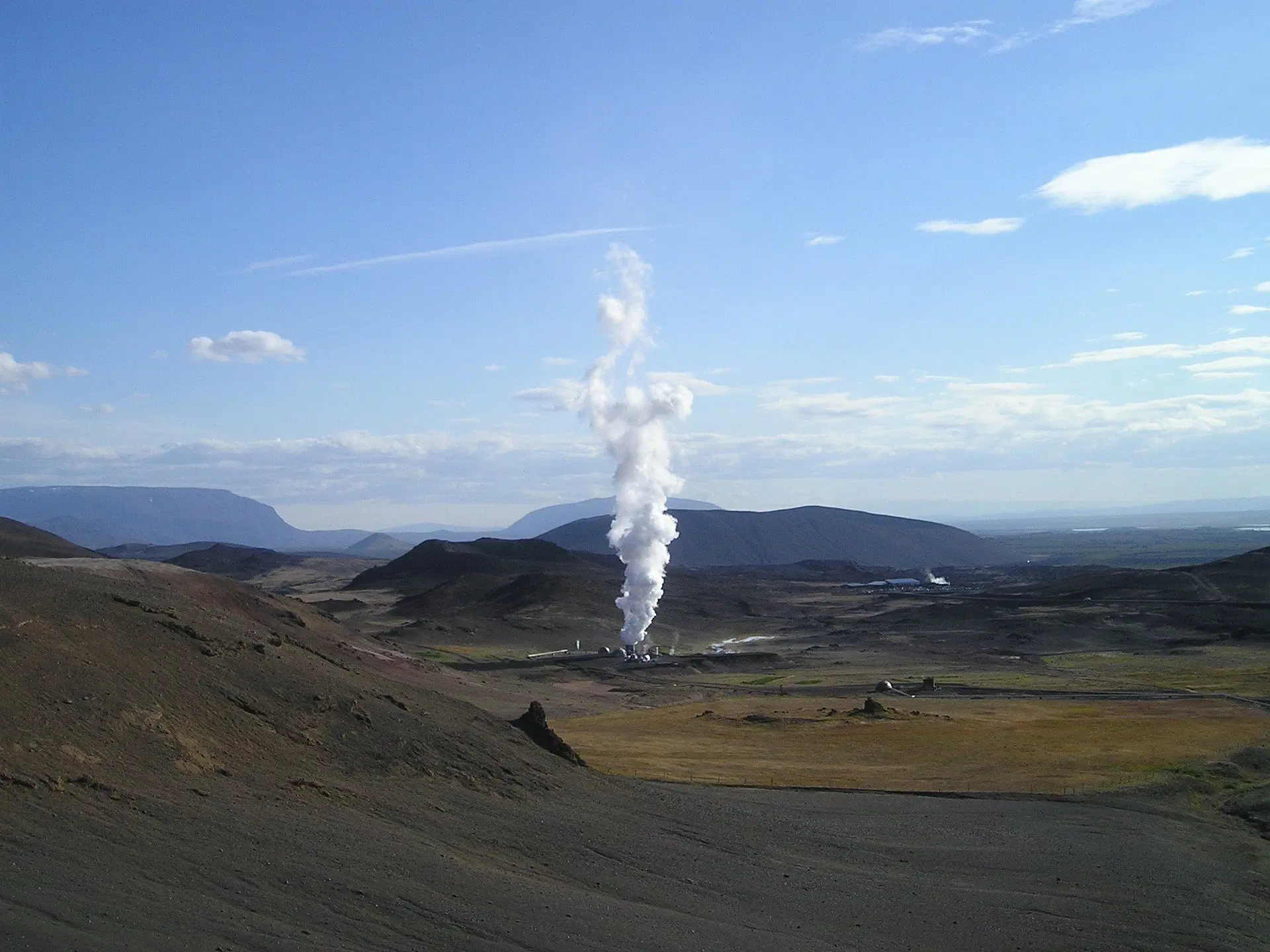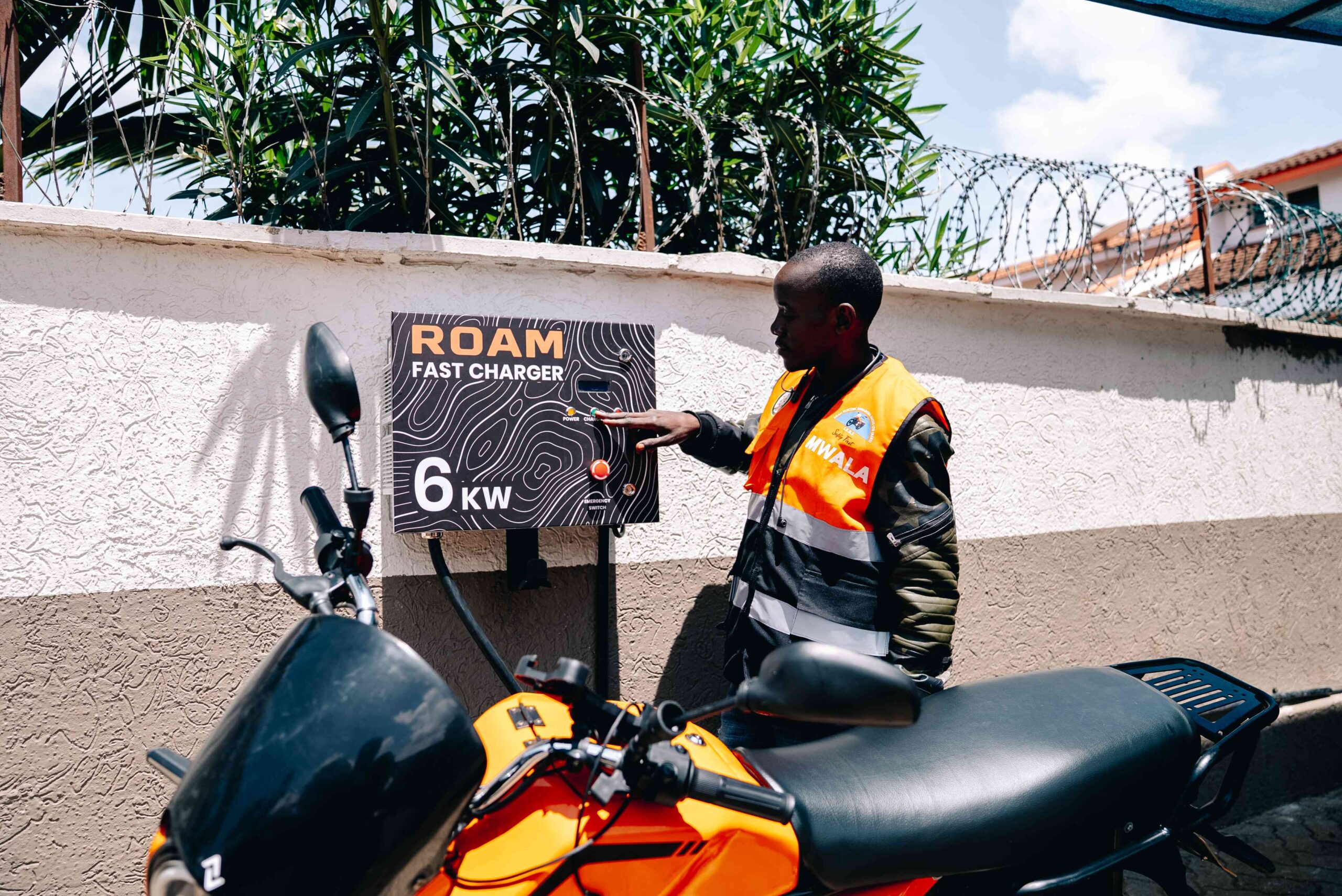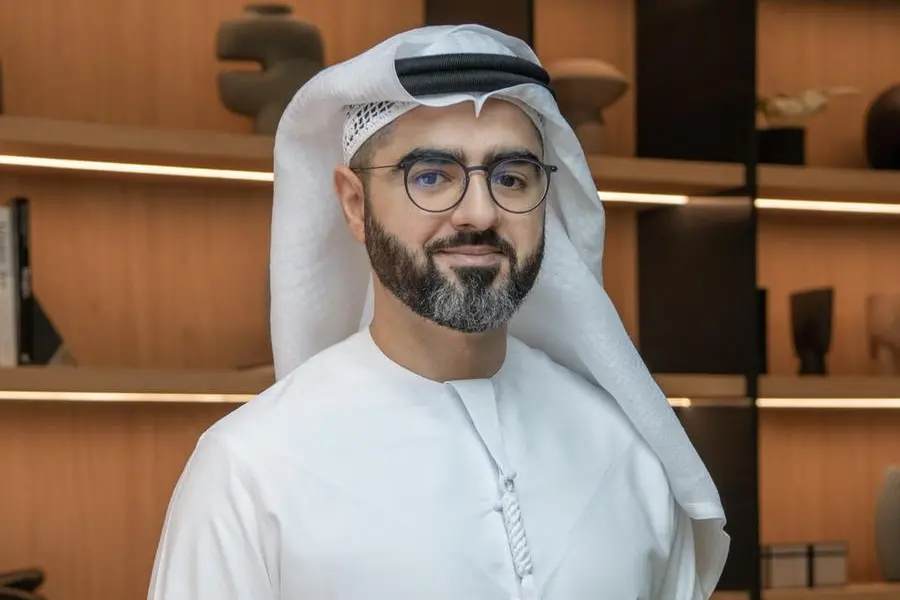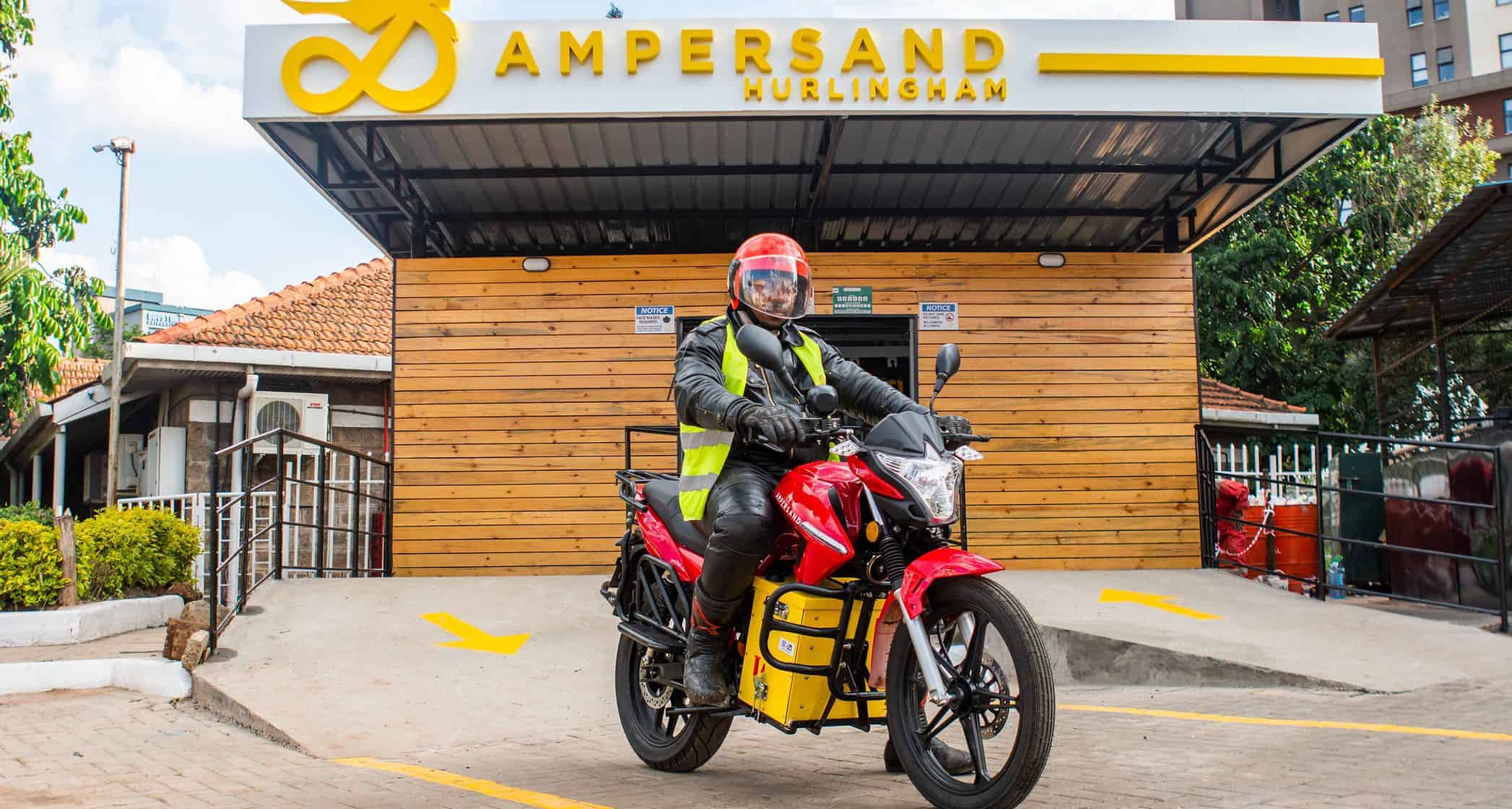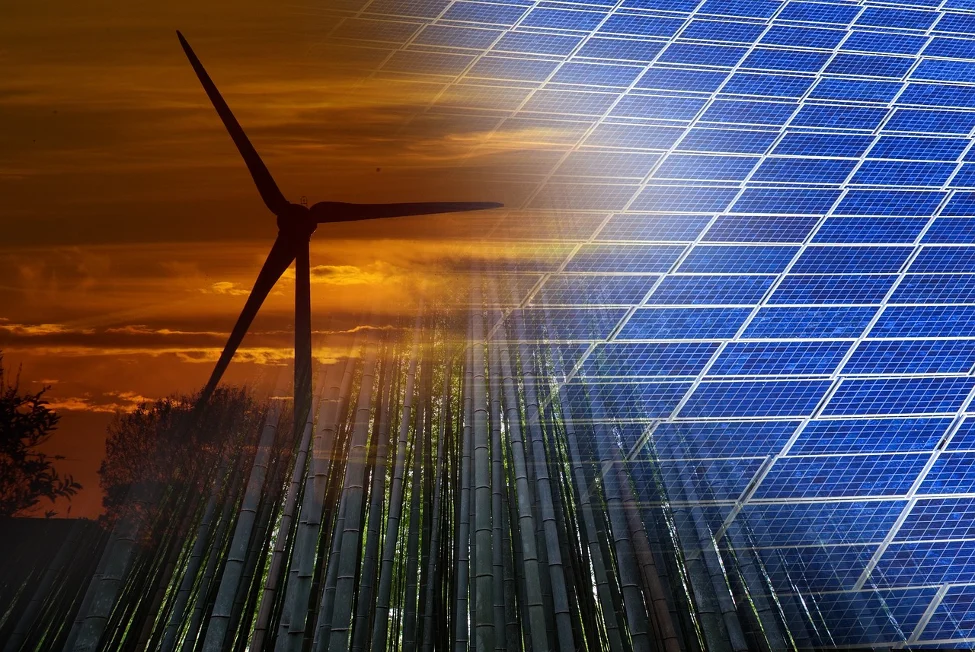Standing in the Rift Valley, you can feel the earth’s geothermal energy vibrating beneath your feet. What if that energy could help save our planet?
Octavia Carbon is making this dream come true, using the Rift’s natural resources to lead the way in climate solutions.
As Africa struggles with the dual challenges of climate vulnerability and economic growth, companies like Octavia Carbon are shifting the narrative from simply carbon offsets to genuine, verifiable carbon removal.
In this post, we’ll look deep into how this Kenyan startup is pioneering direct air capture (DAC) technology, leveraging local resources to combat global warming.
Why Carbon Removal Matters More Than Ever in Africa
Africa contributes less than 4% of global emissions yet bears the brunt of climate impacts, from droughts in Kenya to floods across the continent.
Traditional carbon offsets, think tree-planting schemes, have faced criticism for being temporary or unverifiable.
Enter carbon removal: technologies that actively pull CO₂ from the air and store it permanently. Octavia Carbon is at the forefront, focusing on DAC, which filters CO₂ directly from the surrounding air.
What sets this apart? Unlike offsets that avoid emissions, removal reverses them. The UN’s climate panel emphasises the need for such tech in hard-to-decarbonise sectors like cement and aviation.
In Kenya, where over 90% of electricity comes from renewables, including abundant geothermal energy, DAC becomes not just feasible but cost-effective.
Octavia Carbon’s work could position Africa as a net exporter of carbon removal services, creating jobs and revenue while addressing local climate resilience.
Meet Octavia Carbon: Africa’s DAC Trailblazers
Founded in 2022 by Austrian engineer Martin Freimüller and Kenyan entrepreneur Duncan Kariuki, Octavia Carbon is the Global South’s first DAC company.
Headquartered in Nairobi, the team of about 60, mostly engineers, designs, builds, and deploys DAC machines in-house. Their mission? To “extract carbon dioxide from the atmosphere to help restore our climate,” as stated on their website.
Freimüller, with a background in engineering, saw Kenya’s geothermal potential as a game-changer for DAC, which is energy-intensive.
READ ALSO:
Octavia Carbon Puts Kenya on the Map at GSA Africa With GreenTech Award Victory
Kariuki brings local expertise, ensuring the tech aligns with Kenyan needs. Together, they’ve raised $3.9 million in seed funding from investors like Lateral Frontiers, E4E Africa, and Renew Capital, plus $1.1 million in carbon credit pre-sales.
This funding fuels their vertical integration, from R&D to deployment, making them innovative in a still-developing market.
Quick Facts on Octavia Carbon:
- Location: Nairobi, Kenya, with operations in the Rift Valley.
- Key Innovation: Geothermal-powered DAC for low-cost, renewable energy.
- Milestone: Secured $3 million in carbon credit contracts, covering 40% of their planned plant’s lifetime capacity.
- Team Size: ~60, emphasising local talent.
How Octavia Carbon’s Technology Works: A Simple Breakdown
DAC sounds futuristic, but it’s straightforward: Giant fans draw in air, filters capture CO₂ using chemical sorbents, and the CO₂ is released for storage or use.
Octavia’s edge? Kenya’s geothermal steam provides the heat needed to regenerate filters, slashing energy costs by up to 50% compared to fossil-fuel-dependent systems elsewhere.
Their prototypes capture about 10 tonnes of CO₂ per year per unit, equivalent to the work of 1,000 trees. Captured CO₂ is mineralised underground via partner Cella Mineral Storage, turning it into stable rock.
This makes Kenya the second country after Iceland to inject air-captured CO₂ geologically.
Visualise this: In the Sleeping Warrior Special Economic Zone, machines hum quietly, powered by earth’s heat, pulling invisible pollution from the sky. As one X post notes, “Kenya, for long a victim of climate change, is now SOLVING it.”
Spotlight on Project Hummingbird: Africa’s First DAC Plant
Launched in October 2024, Project Hummingbird is Octavia’s flagship pilot in Naivasha, Rift Valley.
It’s the Southern Hemisphere’s first DAC facility with geological storage, targeting 1,000 tonnes of CO₂ removal annually by 2026. Plans include deploying 100 machines, each capturing 10 tonnes/year.
Why “Hummingbird”? It symbolises agility and efficiency in a warming world. The project not only removes carbon but also creates jobs in engineering and operations, boosting local economies.
Partners like Tomorrow’s Air have pre-purchased credits, funding expansion. As Freimüller told Reuters, “Technology made in Kenya and developed in Kenya, for the use of the world.”
Impact at a Glance (Table):
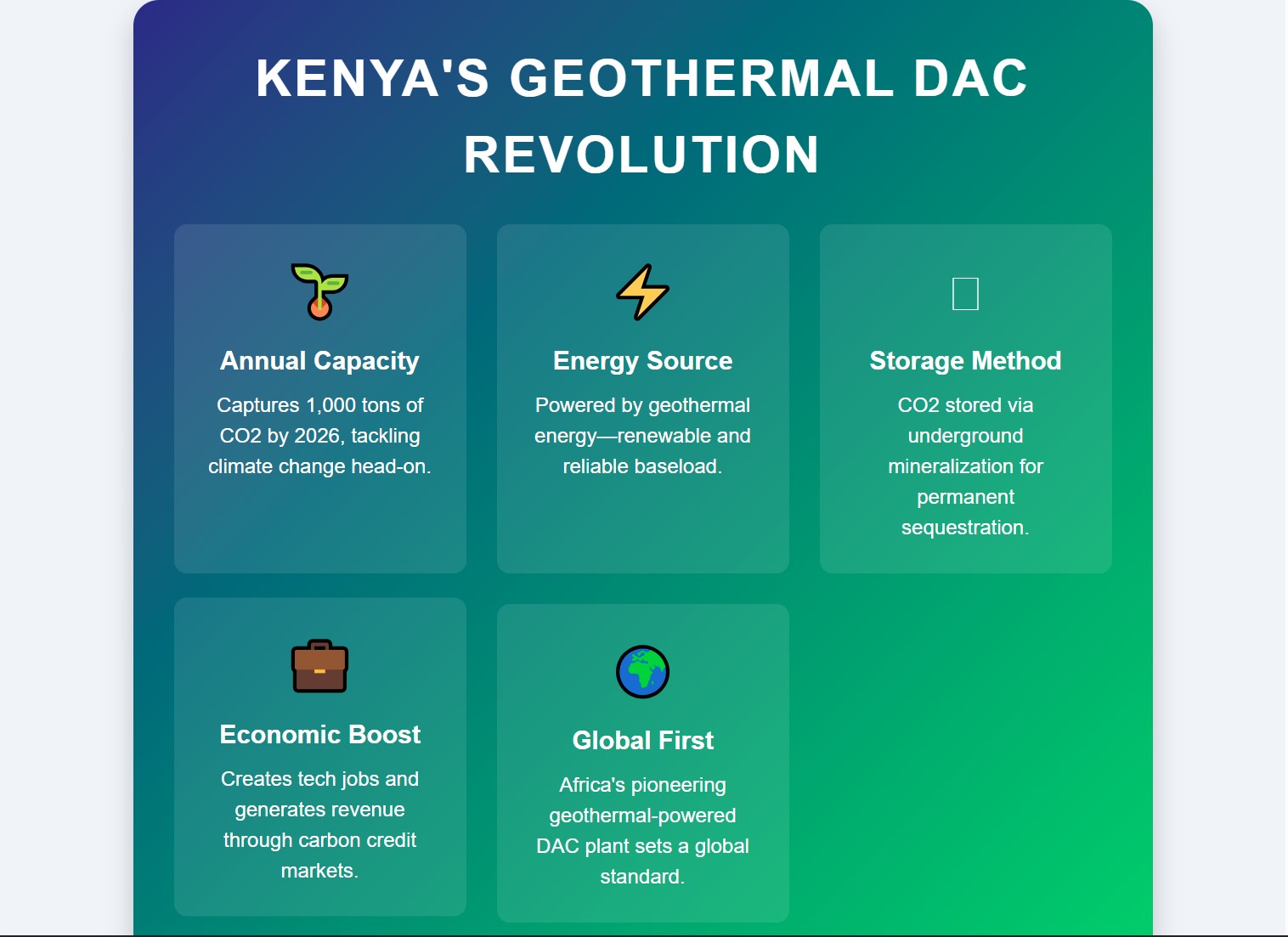
Addressing Challenges: Is DAC Greenwashing or a Game-Changer?
Critics argue DAC could enable “greenwashing”, allowing polluters to buy credits without reducing emissions. High costs, currently $600–$1,000 per tonne, also raise eyebrows.
Octavia counters by focusing on permanent removal, not offsets, and leveraging Kenya’s cheap geothermal to drive prices down.
Community concerns? Octavia emphasises local hiring and transparency. The startup aims for economies of scale to make DAC accessible, targeting $100 per tonne long-term.
READ ALSO:
Octavia Carbon Secures $5M to Advance Climate Solutions in Kenya
The Future: Scaling Carbon Removal Across Africa
By 2030, Octavia plans megaton-scale operations, potentially removing millions of tonnes annually. This could generate billions in carbon credits, with Kenya leading the charge.
Broader implications? Inspiring similar projects in geothermal-rich East Africa, like Ethiopia or Tanzania.
What if Africa becomes the world’s carbon removal hub? Octavia’s model, local innovation, and renewable integration could be replicated, promoting a “green economy” that benefits communities.
Wrapping Up: Join the Carbon Removal Campaign
Octavia Carbon isn’t just removing CO₂; it’s redefining Africa’s role in climate action, from victim to pioneer. By harnessing geothermal power and homegrown talent, they’re proving real carbon removal is possible and profitable.
If this inspires you, explore ways to support: Buy credits via partners or follow their journey on X.
What do you think? Could DAC transform Africa’s climate future? Share in the comments below. For more on geothermal carbon capture or Octavia Carbon updates,ssubscribe toour newsletter. Together, let’s go beyond offsets to a cooler planet.
Ronnie Paul is a seasoned writer and analyst with a prolific portfolio of over 1,000 published articles, specialising in fintech, cryptocurrency, climate change, and digital finance at Africa Digest News.
